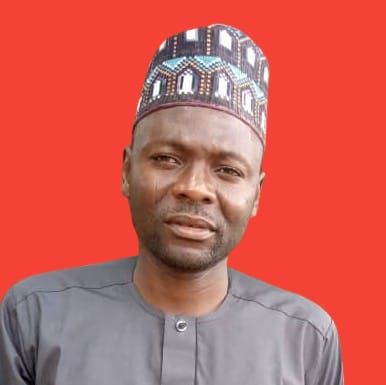By Bagudu Mohammed
I recently stumbled upon a fascinating concept: “why the brain needs friends.” The phrase instantly ignited curiosity, provoking reflection and a kind of quiet wonder that felt both enlightening and entertaining. It made me think deeply about the human craving for friendship, social interaction, and belonging, the same desires that have turned new media into one of the most transformative forces in modern history.
In earlier times, friendships were sustained by patience and distance. People could go months without speaking and still call one another “dear friends.” But today, silence is interpreted as neglect, and not replying to a message can feel like betrayal. I once shared a commercial vehicle with a man who, at every town we passed, would call his wife to report our new location. His consistency impressed and puzzled me. Sitting beside him, I found myself asking whether my own quietness made me less caring, or simply from a generation that expressed affection differently.
Technology has become an emotional lifeline. Many of us feel restless if we lose our phones for a few hours, anxious that the world might be looking for us. And yet, when we finally reconnect, the “urgent” notifications often amount to nothing significant. Still, the attachment persists, evidence that social connection has become a psychological need, not just a habit. Even those whose work schedules leave them little time for friends or family, such as bankers or medical professionals, often confess that what they dislike most about their jobs is the social emptiness.
So when I encountered the idea that the brain itself needs friends, it resonated instantly. Neuroscientist Ben Rein explains that social connection is as vital to human health as sleep, diet, or exercise. Loneliness and isolation, he notes, harm both mind and body. Research shows that meaningful relationships reduce stress, improve memory, and even prolong life. The brain, it turns out, doesn’t just enjoy friendship it depends on it.
The Oxford anthropologist Robin Dunbar once remarked, “We are not only social animals, but social brains.” His Social Brain Hypothesis proposes that our large neocortex evolved to manage the complexities of group living. In other words, the brain’s architecture itself is evidence that humans were never designed to live in isolation. Similarly, studies in neuroscience reveal that when we interact positively with others, our brains release oxytocin, dopamine, and serotonin chemicals that enhance trust, motivation, and happiness. Conversely, prolonged loneliness activates the brain’s threat system, increasing cortisol, impairing memory, and raising the risk of illness.
This makes friendship a biological necessity, but it raises another, deeper question: what kind of friends does the brain actually need?
After all, not all friendships nourish the mind. Some drain it, others distort it. In an age of social media, we form attachments with people we’ve never met, and many retreat into echo chambers that merely mirror their opinions. Some even avoid joining group platforms because, as they say, “they argue too much.” But is avoiding disagreement truly good for the mind?
I recall a discussion on one of my online groups where a senior colleague, Abdulraman Alfa, shared how an extended argument had unsettled him emotionally. He later resolved to avoid debates altogether, advising members to “read, reflect, and move on.” His experience is understandable, yet it left me wondering: can mental health really thrive without the friction of ideas?
The human brain, as research suggests, grows not from comfort but from challenge. Constructive disagreement activates the same neural circuits involved in problem-solving and creativity. According to the psychologist Daniel Kahneman, “thinking is to humans what swimming is to cats, we can do it, but we’d rather not.” Real thinking demands effort, humility, and exposure to discomfort. When we surround ourselves only with voices that echo our own, the brain stagnates, deprived of the stimulation that dissent provides.
Emotional intelligence scholar Daniel Goleman reminds us that empathy and maturity develop when we engage with perspectives that unsettle us. Professor N. N. Wannang once illustrated this point by noting that what is considered polite in one culture may be offensive in another. Meaning that cross-cultural interaction, though sometimes jarring, refines our emotional flexibility. The friendships that truly serve the brain, therefore, are not those that merely affirm us, but those that stretch our capacity for tolerance, patience, and reflection.
The world is too complex for one version of truth. To live only among those who agree with us is to shrink intellectually and emotionally. The greatest threat to mental health may not be the absence of friends but the absence of emotional maturity, the inability to coexist peacefully in diversity. The real danger lies in surrounding ourselves with those who constantly validate our biases and shield us from unpleasant truths. Such comfort breeds fragility, not strength.
Indeed, the best friends for the brain are not always the easiest ones. They are those who challenge us with honesty, confront our assumptions, and expose us to uncomfortable realities. They are mirrors: sometimes kind, sometimes harsh reflecting both our virtues and our flaws. Disagreements, if handled with respect, are not threats to harmony but exercises in growth.
Even within families, the most valuable members are often those who offer fresh perspectives, question our certainties, or express fears we’d rather not confront. These “difficult” companions help us build resilience, empathy, and self-awareness.
Certainly, what the brain needs are not friends who offer perpetual comfort, but those who offer constructive tension people who expand our world rather than shrink it. As philosopher John Stuart Mill once observed, “He who knows only his own side of the case knows little of that.”
To keep the brain alive, we must not only seek friendship but the right kind: honest, challenging, compassionate, and diverse. Because in the end, it is not the silence of our enemies that dulls the mind, but the agreeable echo of too many friends who never dare to disagree.
